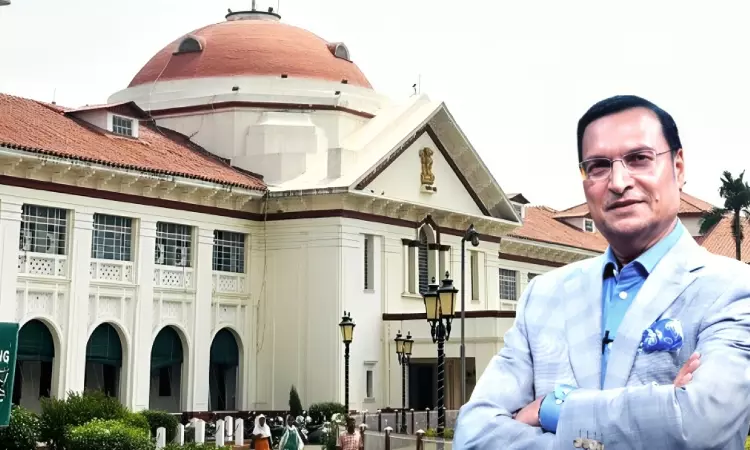- Home
- /
- High Courts
- /
- Patna High Court
- /
- Patna HC Stays Case Against Rajat...
Patna HC Stays Case Against Rajat Sharma Over India TV's Alleged Report Labelling Man As 'Fake Currency Trader'
Sparsh Upadhyay
19 July 2025 8:22 PM IST
The Patna High Court on Friday granted relief to Journalist Rajat Sharma, the Editor-in-Chief and Co-founder of 'India TV', in connection with a news report allegedly labelling a man as a 'fake currency trader'. A bench of Justice Chandra Shekhar Jha stayed coercive action as well as the proceedings of the complaint case filed against Sharma by the complainant, Amit...
The Patna High Court on Friday granted relief to Journalist Rajat Sharma, the Editor-in-Chief and Co-founder of 'India TV', in connection with a news report allegedly labelling a man as a 'fake currency trader'.
A bench of Justice Chandra Shekhar Jha stayed coercive action as well as the proceedings of the complaint case filed against Sharma by the complainant, Amit Kumar.
Essentially, the complainant had filed the case against Sharma before a court of the Chief Judicial Magistrate, Civil Court, Patna Sadar, alleging that the news report had tarnished his image and caused significant mental and social distress to him.
It was his case that on April 21, 2018, he was arrested by Patna Police in connection with a fake currency racket case, following which, a video clip was uploaded and broadcast by Sharma's India TV, accusing him of trading fake currency.
He further stated in his complaint, a cognizance of which was taken by the Court in September last year, that despite requests to the accused to delete the video and a subsequent legal notice, the accused has not taken any action, which showed Sharma's malicious intention
Challenging the proceedings of this case, Sharma had moved the High Court through Senior Advocate PN Shahi, Advocates Apurv Harsh & Manu Tripurari, contending that the news clip in question was based on information provided to the India TV news channel by the Patna police.
It was also argued that the alleged news report did not pronounce the Complainant as guilty or innocent and simply reported the facts received from the police authorities.
It was also submitted that the case was registered after 5 years of the alleged media reporting and that it wasn't a case of intentional insult causing provocation to any person, where such provocation will cause him to break the public peace or to commit any offence.
Lastly, it was argued that the cognizance was taken in very hurried manner, which is apparent from the fact that it was taken even for offence under Section 66(A)(b) of the IT Act, which was held unconstitutional by the Supreme Court.
Considering the submissions of Sharma's counsels, the Court granted him relief by staying the proceedings of the case.



